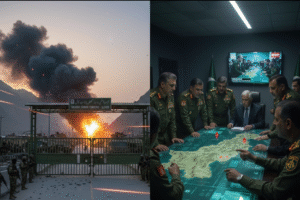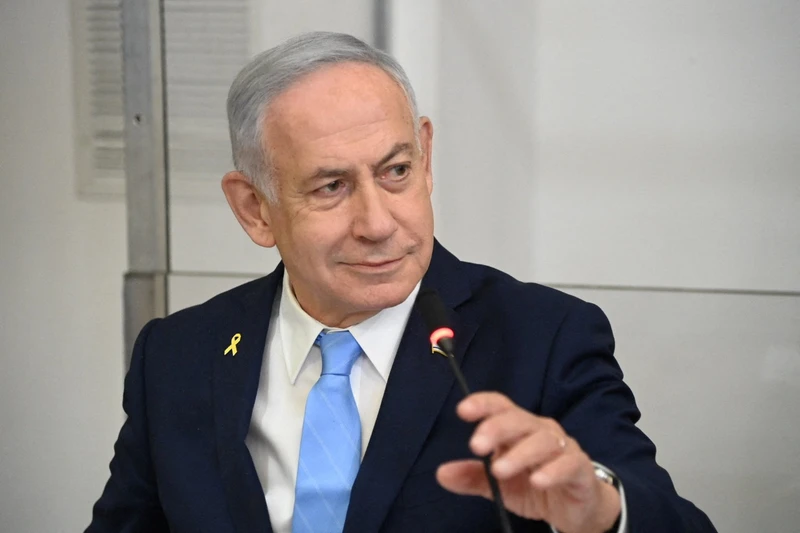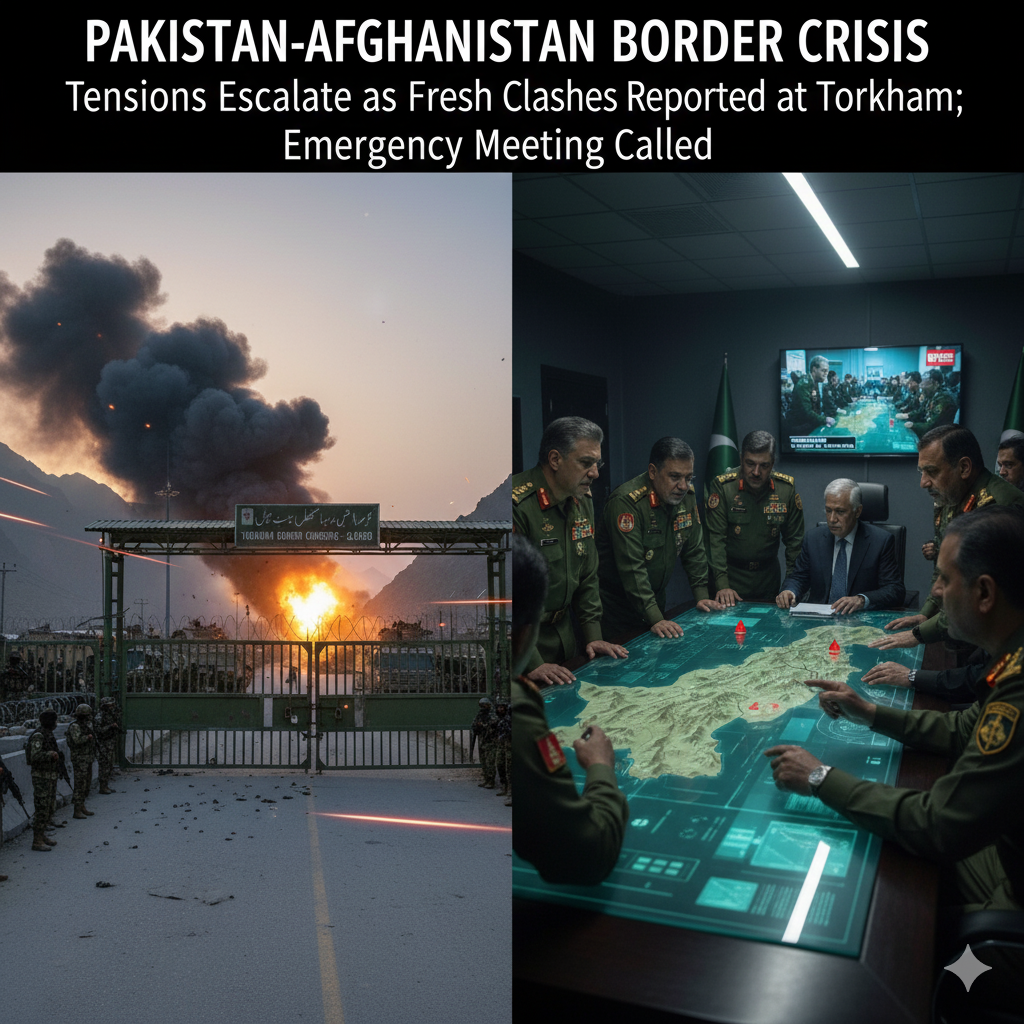Israeli Prime Minister Benjamin Netanyahu has triggered intense global debate after his latest defense of the controversial strike on Hamas leaders in Doha, Qatar. In a statement that has stirred both international criticism and domestic support, Netanyahu Defends Qatar Strike by drawing a bold parallel between Israel’s actions and America’s 2011 operation against Osama bin Laden in Pakistan.
The remarks, coupled with a stark warning to nations harboring what Israel considers terrorists, have introduced a new chapter into the already volatile Middle East landscape. Netanyahu’s comments not only placed the strike under the spotlight but also widened the scope of strategic discussions involving counterterrorism operations abroad.
Context Behind the Qatar Strike
The Israeli military confirmed last week that it carried out a targeted airstrike in Doha, claiming the attack eliminated senior Hamas leaders who were allegedly coordinating militant activities against Israel. The move immediately raised questions about Qatar’s role as both a humanitarian mediator and a host to Hamas’s political office.
Israel has long accused Qatar of providing safe haven and indirect support to the group. However, carrying out an operation on Qatari soil represents a dramatic escalation, drawing international condemnation. Qatar swiftly labeled the strike a violation of sovereignty and called on the United Nations to hold Israel accountable.
By choosing to publicly address the backlash, Netanyahu positioned himself at the center of an argument that is quickly becoming global in scope.
Netanyahu’s Comparison to the Bin Laden Raid
In his defense, Netanyahu Defends Qatar Strike by citing the United States’ unilateral operation against Al Qaeda leader Osama bin Laden in 2011. At that time, American forces entered Abbottabad, Pakistan without prior permission to conduct one of the most daring counterterrorism raids in history.
Netanyahu stated that Israel, like the U.S., retains the right to pursue enemies across borders if they pose a direct threat to its national security. According to him, the principle is clear: no state should provide sanctuary to individuals orchestrating violent attacks. He went further, suggesting that nations who shield such figures “cannot escape responsibility” and may eventually face consequences.
This rhetoric has placed Netanyahu’s government in a stronger defensive posture but has also intensified backlash, especially from Qatar, Pakistan, and several other nations that denounce extraterritorial strikes.
Global Reactions and Diplomatic Fallout
Netanyahu’s comparisons immediately sparked mixed responses. Western allies, including the United States, expressed measured concern, reaffirming Israel’s right to self defense but urging restraint. Washington has avoided fully endorsing the Qatar strike, citing the importance of Doha as a regional mediator in ongoing conflicts.
Arab states across the Gulf and the wider Middle East, however, have strongly condemned Israel’s action. Qatar slammed the attack as “aggression on its sovereignty,” while other nations warned that such operations erode international legal norms. Even Europe has reacted cautiously, with EU officials stressing the need for proportionality and multilateral coordination.
Against this backdrop of global tension, Netanyahu Defends Qatar Strike as part of a broader security doctrine that prioritizes Israeli lives over diplomatic sensitivities.
Warning to Nations Harboring Militants
Perhaps the most striking element of Netanyahu’s statement was his warning to countries believed to be offering protection or safe havens to militant leaders. With deliberate clarity, Netanyahu Defends Qatar Strike by urging states to either expel hostile actors or prepare to face “the consequences of complicity.”
While he did not name specific governments beyond Qatar, analysts interpret the warning as a message directed at multiple nations in the region, where exiled leaders of groups hostile to Israel often reside. By expanding his rhetoric, Netanyahu positions Israel as willing to carry out cross border operations in the future, potentially raising new geopolitical risks.
Domestic Impact in Israel
Inside Israel, Netanyahu’s statement has had a polarizing effect. Supporters hailed him as a strong leader who takes decisive action to protect national security. Critics, however, warned that broad comparisons to U.S. counterterrorism could justify a dangerous precedent for unilateral strikes that may drag Israel into further diplomatic isolation.
Security analysts within Israel point out that the bin Laden operation occurred in a unique global context, with Al Qaeda seen as a universally recognized threat after 9/11. In contrast, Israel’s strike in Doha has not commanded similar international consensus. As a result, Netanyahu Defends Qatar Strike at home by appealing primarily to domestic security narratives.
Implications for Qatar and Regional Stability
Qatar’s role as a mediator in Middle East conflicts is now under intense scrutiny. The country has often served as a negotiating hub for ceasefires between Hamas and Israel, but the recent attack may undermine this delicate balance. Doha has already launched diplomatic protests and may reconsider its stance in facilitating dialogue.
Analysts caution that if Qatar withdraws from mediation, regional violence could escalate. Furthermore, Netanyahu Defends Qatar Strike in such a way that complicates Qatar’s strategic calculus; remaining neutral while sheltering Hamas leaders has now become increasingly difficult.
Broader Strategic Significance
The global debate triggered by Netanyahu’s remarks touches on broader issues of sovereignty, the legitimacy of unilateral military actions, and the evolving norms of counterterrorism. Some legal experts have argued that his framing risks normalizing extraterritorial assassinations, further destabilizing international laws governing conflicts.
Others believe Netanyahu’s stance reflects an inevitable reality of modern warfare, where non state actors operate across borders and traditional notions of sovereignty are increasingly challenged. Whatever view prevails, Netanyahu Defends Qatar Strike as a symbolic moment that may shape how nations confront terrorist networks in the future.
Conclusion
The defense offered by Israeli Prime Minister Benjamin Netanyahu has sent ripples far beyond Doha or Tel Aviv. By comparing his strike on Hamas leaders in Qatar to America’s bin Laden operation in Pakistan, Netanyahu has reignited a heated global debate about sovereignty, security, and the ethics of unilateral action.
While his remarks shore up domestic support and send a stark warning to nations housing individuals hostile to Israel, they also risk deepening isolation on the international stage. With diplomacy strained, the coming months will determine whether this strike represents a turning point in Israel’s security doctrine or a dangerous precedent that accelerates further regional escalation.

















